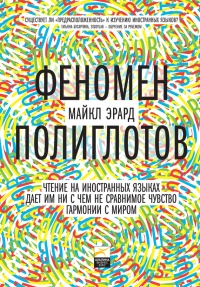Читать книгу "Как рождаются эмоции. Революция в понимании мозга и управлении эмоциями - Лиза Фельдман Барретт"
Шрифт:
Интервал:
Закладка:
Loftus, Elizabeth F., and J. C. Palmer. 1974. “Reconstruction of Automobile Destruction: An Example of the Interaction Between Language and Memory.” Journal of Verbal Learning and Verbal Behavior 13 (5): 585–589.
Lokuge, Sonali, Benicio N. Frey, Jane A. Foster, Claudio N. Soares, and Meir Steiner. 2011. “Commentary: Depression in Women: Windows of Vulnerability and New Insights into the Link Between Estrogen and Serotonin.” Journal of Clinical Psychiatry 72 (11): 1563–1569.
Lorch, Marjorie Perlman. 2008. “The Merest Logomachy: The 1868 Norwich Discussion of Aphasia by Hughlings Jackson and Broca.” Brain 131 (6): 1658–1670.
Louveau, Antoine, Igor Smirnov, Timothy J. Keyes, Jacob D. Eccles, Sherin J. Rouhani, J. David Peske, Noel C. Derecki, David Castle, James W. Mandell, and Kevin S. Lee. 2015. “Structural and Functional Features of Central Nervous System Lymphatic Vessels.” Nature 523: 337–341.
Lujan, J. Luis, Ashutosh Chaturvedi, Ki Sueng Choi, Paul E. Holtzheimer, Robert E. Gross, Helen S. Mayberg, and Cameron C. McIntyre. 2013. “Tractography-Activation Models Applied to Subcallosal Cingulate Deep Brain Stimulation.” Brain Stimulation 6 (5): 737–739.
Luminet, Olivier, Bernard Rimé, R. Michael Bagby, and Graeme Taylor. 2004. “A Multimodal Investigation of Emotional Responding in Alexithymia.” Cognition and Emotion 18 (6): 741–766.
Lutz, Catherine. 1980. Emotion Words and Emotional Development on Ifaluk Atoll. Ph.D. diss., Harvard University, 003878556.
——— . 1983. “Parental Goals, Ethnopsychology, and the Development of Emotional Meaning.” Ethos11 (4): 246–262.
Lynch, Mona, and Craig Haney. 2011. “Looking Across the Empathic Divide: Racialized Decision Making on the Capital Jury.” Michigan State Law Review 2011: 573–607.
Ma, Lili, and Fei Xu. 2011. “Young Children’s Use of Statistical Sampling Evidence to Infer the Subjectivity of Preferences.” Cognition 120 (3): 403–411.
MacLean, P. D., and V. A. Kral. 1973. A Triune Concept of the Brain and Behavior. Toronto: University of Toronto Press.
Madrick, Jeff. 2014. Seven Bad Ideas: How Mainstream Economists Have Damaged America and the World. New York: Vintage.
Maihöfner, Christian, Clemens Forster, Frank Birklein, Bernhard Neundörfer, and Hermann O. Handwerker. 2005. “Brain Processing During Mechanical Hyperalgesia in Complex Regional Pain Syndrome: A Functional MRI Study.” Pain 114 (1): 93–103.
Malik, Bilal R., and James J. L. Hodge. 2014. “Drosophila Adult Olfactory Shock Learning.” Journal of Visualized Experiments (90): 1–5. doi:10.3791/50107.
Malt, Barbara, and Phillip Wolff. 2010. Words and the Mind: How Words Capture Human Experience. New York: Oxford University Press.
Marder, E., and A. L. Taylor. 2011. “Multiple Models to Capture the Variability in Biological Neurons and Networks.” Nature Neuroscience 14: 133–138.
Marder, Eve. 2012. “Neuromodulation of Neuronal Circuits: Back to the Future.” Neuron 76 (1): 1–11.
Mareschal, Denis, Mark H. Johnson, Sylvain Sirois, Michael Spratling, Michael S. C. Thomas, and Gert Westermann. 2007. Neuroconstructivism-I: How the Brain Constructs Cognition. New York: Oxford University Press.
Mareschal, Denis, Paul C. Quinn, and Stephen E. G. Lea. 2010. The Making of Human Concepts. New York: Oxford University Press.
Marmi, Josep, Jaume Bertranpetit, Jaume Terradas, Osamu Takenaka, and Xavier Domingo-Roura. 2004. “Radiation and Phylogeography in the Japanese Macaque, Macaca Fuscata.” Molecular Phylogenetics and Evolution 30 (3): 676–685.
Martin, Alia, and Laurie R. Santos. 2014. “The Origins of Belief Representation: Monkeys Fail to Automatically Represent Others’ Beliefs.” Cognition 130 (3): 300–308.
Martin, René, Ellen E. I. Gordon, and Patricia Lounsbury. 1998. “Gender Disparities in the Attribution of Cardiac-Related Symptoms: Contribution of Common Sense Models of Illness.” Health Psychology 17 (4): 346–357.
Martin, René, Catherine Lemos, Nan Rothrock, S. Beth Bellman, Daniel Russell, Toni Tripp-Reimer, Patricia Lounsbury, and Ellen Gordon. 2004. “Gender Disparities in Common Sense Models of Illness Among Myocardial Infarction Victims.” Health Psychology 23 (4): 345–353.
Martins, Nicole. 2013. “Televised Relational and Physical Aggression and Children’s Hostile Intent Attributions.” Journal of Experimental Child Psychology 116 (4): 945–952.
Martins, Nicole, Marie-Louise Mares, Mona Malacane, and Alanna Peebles. In press. “Liked Characters Get a Moral Pass: Young Viewers’ Evaluations of Social and Physical Aggression in Tween Sitcoms.” Communication Research.
Martins, Nicole, and Barbara J. Wilson. 2011. “Genre Differences in the Portrayal of Social Aggression in Programs Popular with Children.” Communication Research Reports 28 (2): 130–140.
——— . 2012a. “Mean on the Screen: Social Aggression in Programs Popular with Children.” Journal of Communication 62 (6): 991–1009.
——— . 2012b. “Social Aggression on Television and Its Relationship to Children’s Aggression in the Classroom.” Human Communication Research 38 (1): 48–71.
Massachusetts General Hospital Center for Law, Brain, and Behavior. 2013. “Memory in the Courtroom: Fixed, Fallible or Fleeting?” http://clbb.mgh.harvard.edu/memory-in-the-courtroom-fixed-fallible-or-fleeting.
Master, Sarah L., David M. Amodio, Annette L. Stanton, Cindy M. Yee, Clayton J. Hilmert, and Shelley E. Taylor. 2009. “Neurobiological Correlates of Coping Through Emotional Approach.” Brain, Behavior, and Immunity 23 (1): 27–35.
Mathers, Colin, Doris Ma Fat, and Jan Ties Boerma. 2008. The Global Burden of Disease: 2004 Update.Geneva: World Health Organization.
Mathis, Diane, and Steven E. Shoelson. 2011. “Immunometabolism: An Emerging Frontier.” Nature Reviews Immunology 11 (2): 81–83.
Matsumoto, David, Dacher Keltner, Michelle N. Shiota, Maureen O’Sullivan, and Mark Frank. 2008. “Facial Expressions of Emotion.” In Handbook of Emotions, 3rd edition, edited by Michael Lewis, Jeannette M. Haviland-Jones, and Lisa Feldman Barrett, 211–234. New York: Guilford Press.
Matsumoto, David, Seung Hee Yoo, and Johnny Fontaine. 2008. “Mapping Expressive Differences Around the World: The Relationship Between Emotional Display Rules and Individualism Versus Collectivism.” Journal of Cross-Cultural Psychology 39 (1): 55–74.
Matsuzawa, Tetsuro. 2010. “Cognitive Development in Chimpanzees: A Trade-Off Between Memory and Abstraction.” In The Making of Human Concepts, edited by Denis Mareschal, Paul C. Quinn, and Stephen E. G. Lea, 227–244. New York: Oxford University Press.
Внимание!
Сайт сохраняет куки вашего браузера. Вы сможете в любой момент сделать закладку и продолжить прочтение книги «Как рождаются эмоции. Революция в понимании мозга и управлении эмоциями - Лиза Фельдман Барретт», после закрытия браузера.




